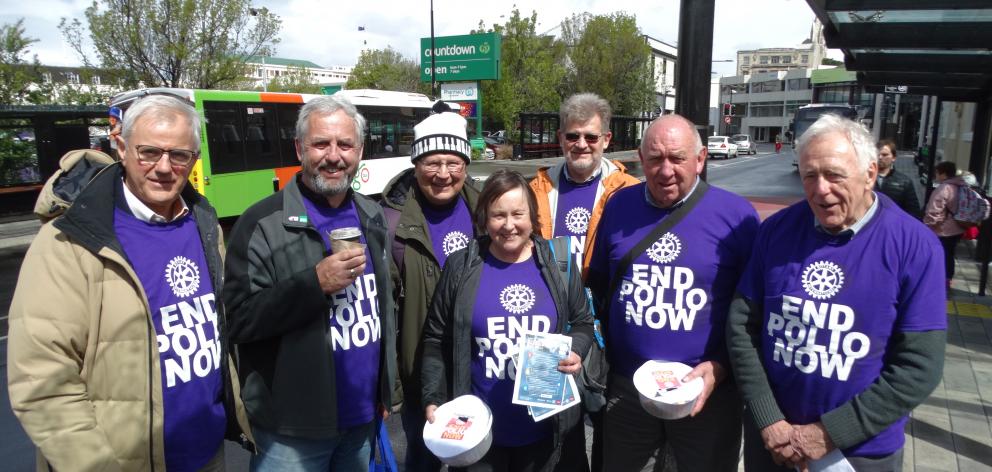
Dunedin Rotarians criss-crossed the city by bus last week, raising awareness and funds for the eradication of polio through their Ride the Buses campaign.
Held on World Polio Day (October 24), the Ride the Buses campaign was inspired by similar projects to ride the trains in Sydney, Auckland and Christchurch.
Rotary Dunedin president Emeritus Prof John Drummond said about two dozen Rotarians enjoyed taking part in the event, despite the squally weather.
"We thought we should ride the buses here in Dunedin, not only to support End Polio Now, but to encourage others to use our wonderful bus network,'' Prof Drummond said.
"It was a bit chilly for those of us who were on the street at the bus hub, but the Rotarians inside the buses were absolutely fine.''
Wearing purple T-shirts emblazoned with "End Polio Now'', the Rotarians had enjoyed spreading the message about the need to eradicate polio.
"Older people were aware of polio as a disease, but a lot of younger people had no idea what it was, and were very interested to learn more.''
New Zealand's last case of polio was in 1977.
Every dollar collected by the Rotarians in the initiative, held under the umbrella of the international End Polio campaign, will be matched by $2 from the Bill and Melinda Gates Foundation.
While the total amount collected on Thursday was still to be added up, Prof Drummond said it would be well over $1000.
Polio is a disease leading to paralysis, especially among children.
Millions across the world used to suffer from it, but the World Health Organisation, Unicef and Rotary International have spent 20 years working to eradicate it.
It is now found in only three countries - Pakistan, Afghanistan and Nigeria - and is close to being eradicated worldwide.
BRENDA.HARWOOD @thestar.co.nz














